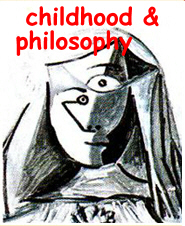a constellation of chilhood
Abstract
In the following excerpts, Walter Benjamin explores the simple activities of childhood in order to find paradimactic instances of dialectic thinking and aesthetic theory. Thus reflections on childhood reveal naïve and intuitive moments of complex conceptual operations that are later lost to adults stuck in a one-dimensional world of production and consumption. An autobiography of childhood is not reducible to a series of Oedipal dramas that haunt the conscious self. The archeology of memory is first and foremost a methodology for philosophical thinking through which philosophy and experience reunite in the figure of the child at play in his or her surroundings. While not supplying us with a full philosophy of childhood, Benjamin nevertheless presents the reader with a complex constellation of images which suggest, when read together, that childhood—mediated through the intellectual activity and experience of the adult—is a potent resource for philosophical practice. In the phenomenology of childhood—in the seemingly inconsequential and smallest details of childlike play—the very idea of the world is to once again be rekindled for the adult. Thus these images excavated from Benjamin’s memory, ripped from their original context by the passing of historical time, become integrated into a new constellation of meanings through the process of autobiographical reflection. Keywords: dialectics; Berlin; playDownloads
Published
2010-04-27
How to Cite
lewis, tyson. (2010). a constellation of chilhood. Childhood & Philosophy, 3(6), pp. 175–185. Retrieved from https://www.e-publicacoes.uerj.br/childhood/article/view/20516
Issue
Section
articles




